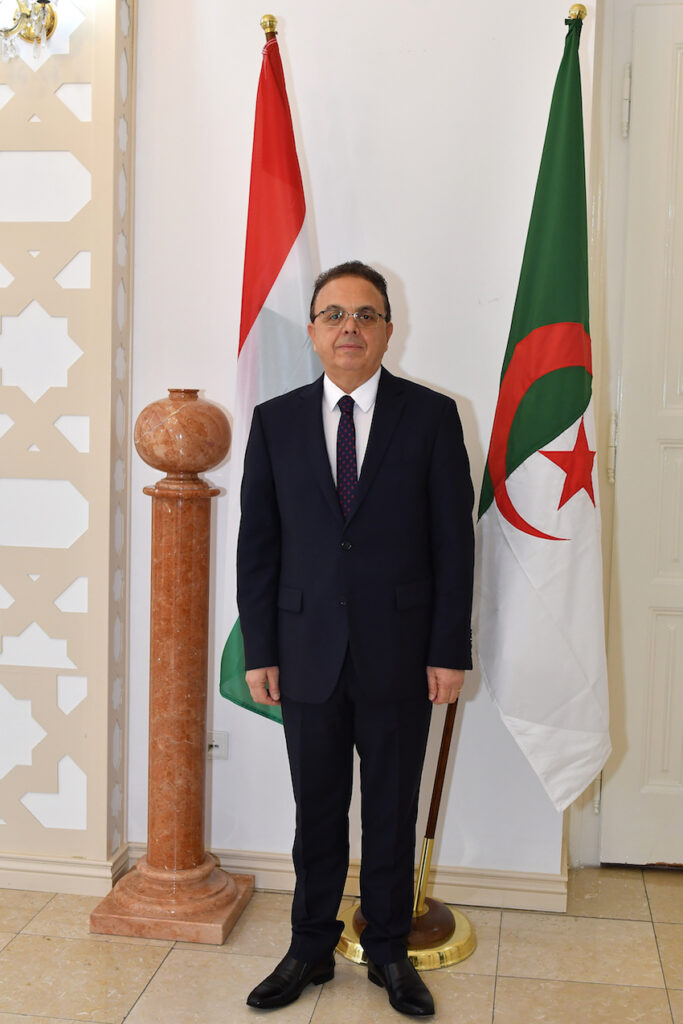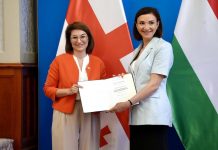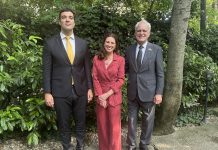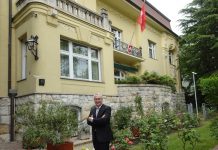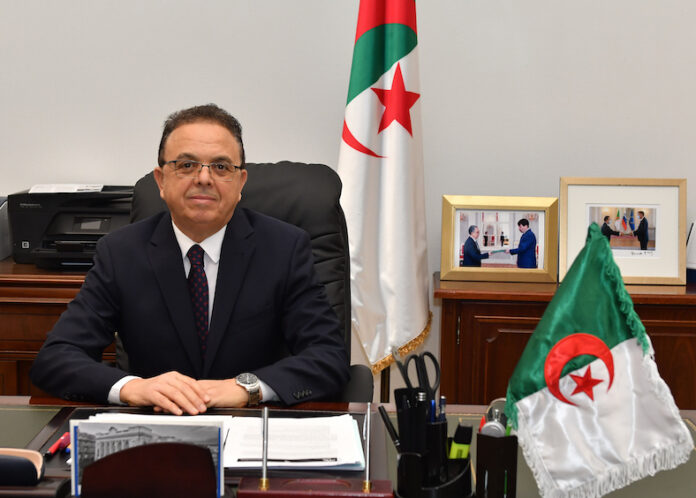Interview with H.E. Mr. Ali Mokrani, Ambassador of Algeria to Hungary
Written by Anna Popper
Your Excellency, on the 60th anniversary of Algeria’s independence, I would like to convey our best wishes and congratulations. How did Your Embassy celebrate it in Hungary?
– First of all, I would like to thank your kind congratulations on the 60th anniversary of Algeria’s independence. I am grateful for honouring us with your presence at our National Day reception and for having shared with us the celebration organized by the Embassy in honour of July 5, the date of independence that coincides with the 60th anniversary of the establishment of diplomatic relations between Algeria and Hungary.

As you could see, we invited some artists and exhibitors to the reception, and before the end of 2022 we plan to organize more events in the framework of the celebration of 60 years of diplomatic ties between our countries, including an exhibition of photos and paintings, a meeting with members of the Algerian community and students residing in Hungary, a friendly football match and raising a statue in honour of Emir Abdelkader, a famous figure in Algerian history.
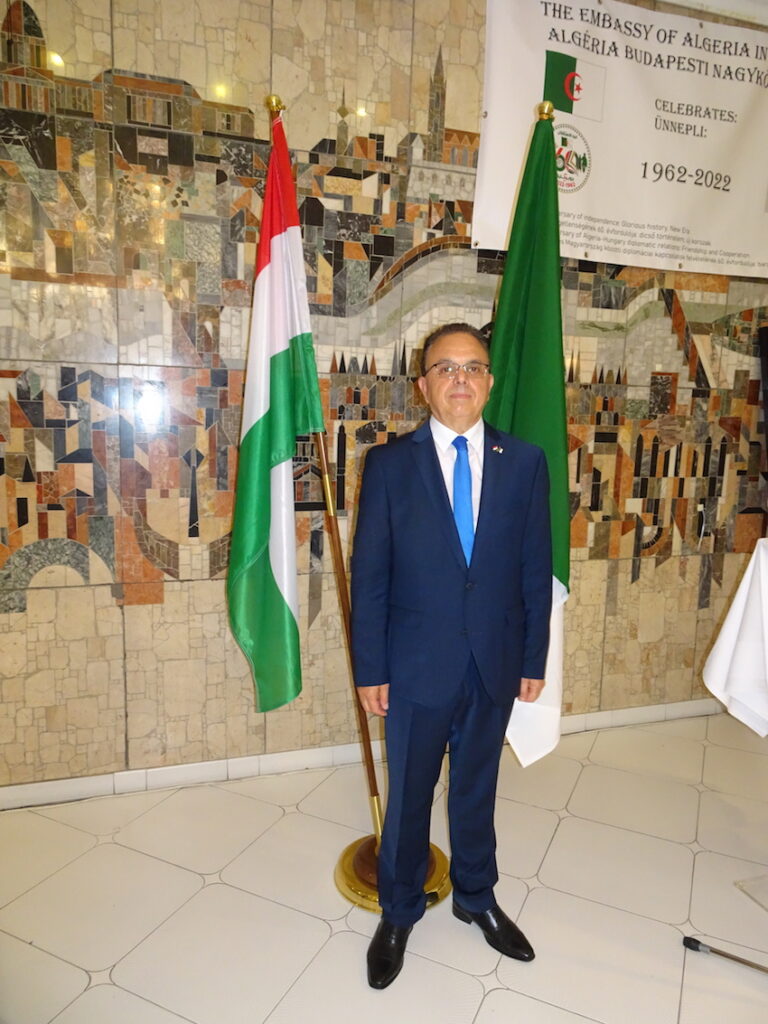
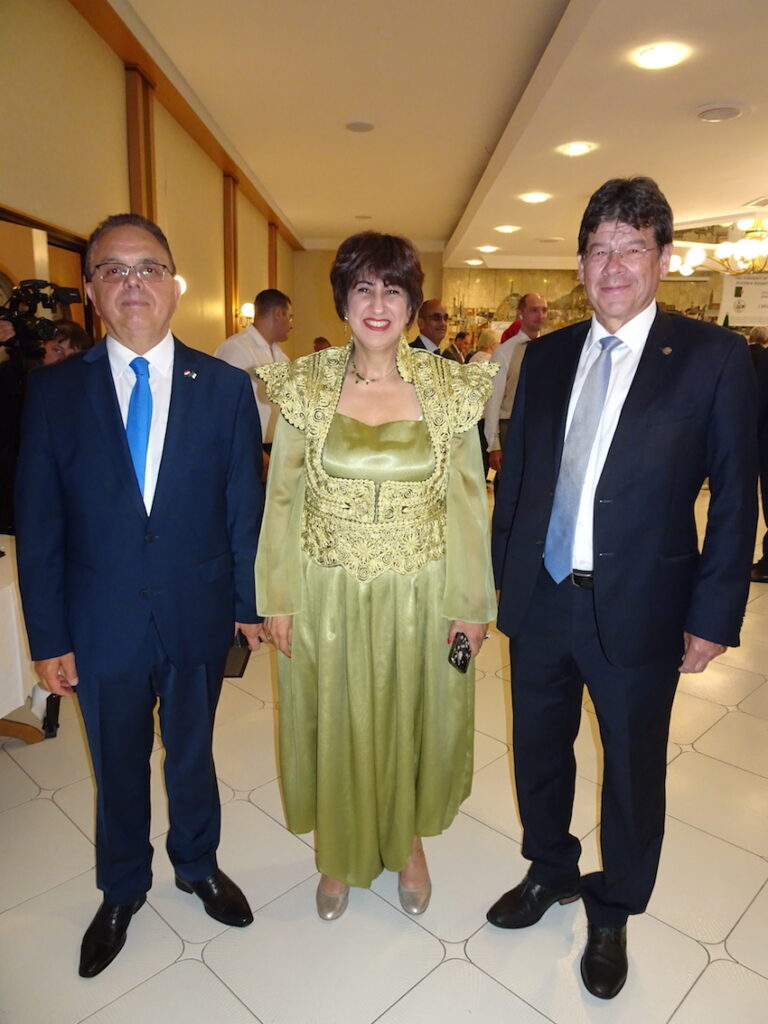


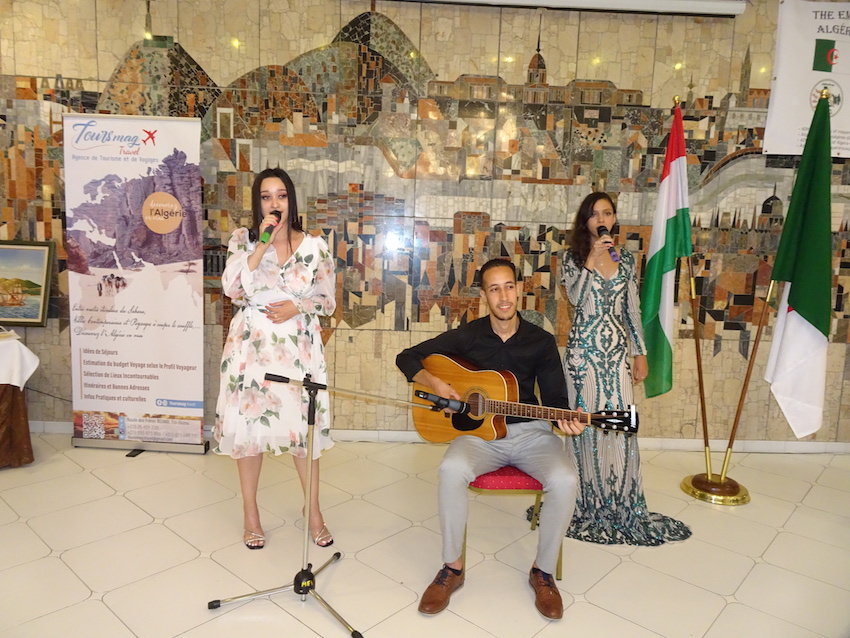
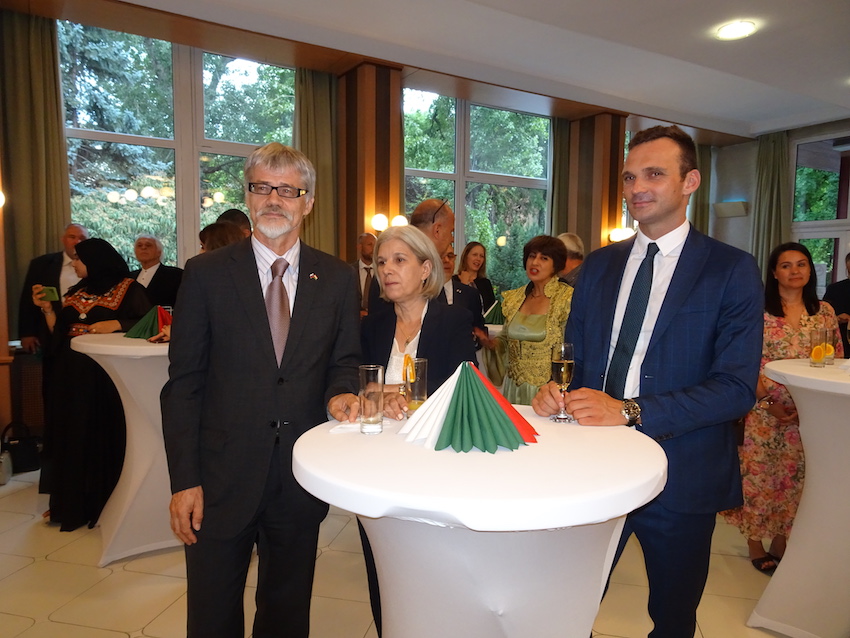
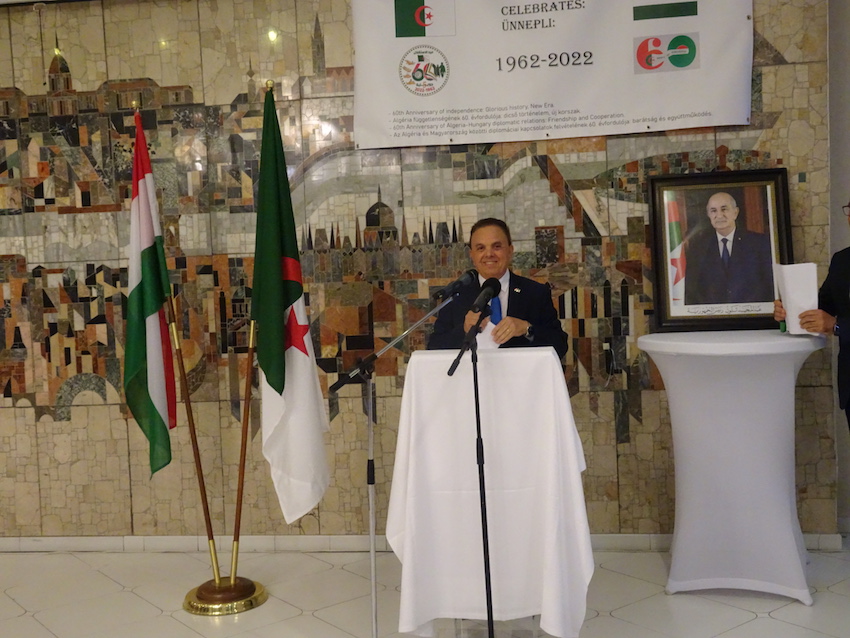
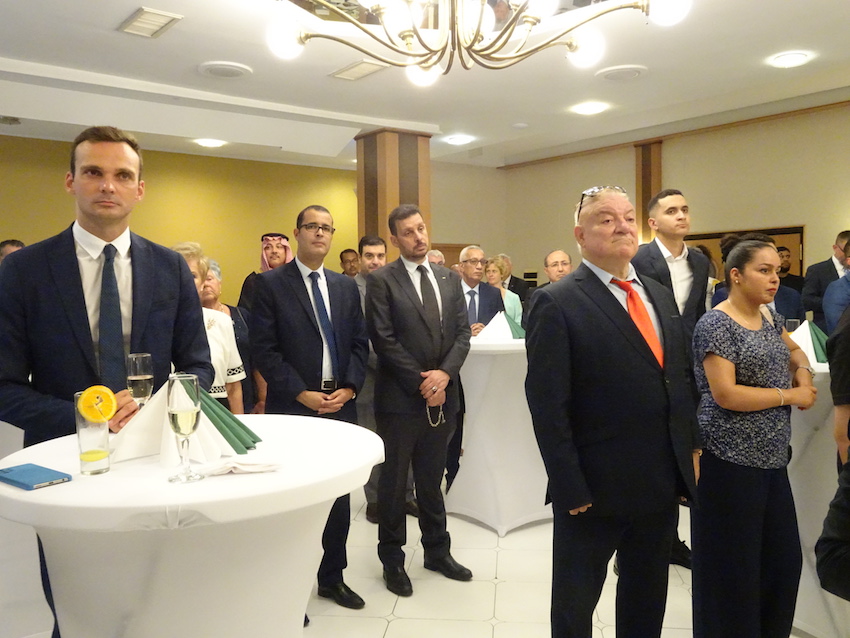
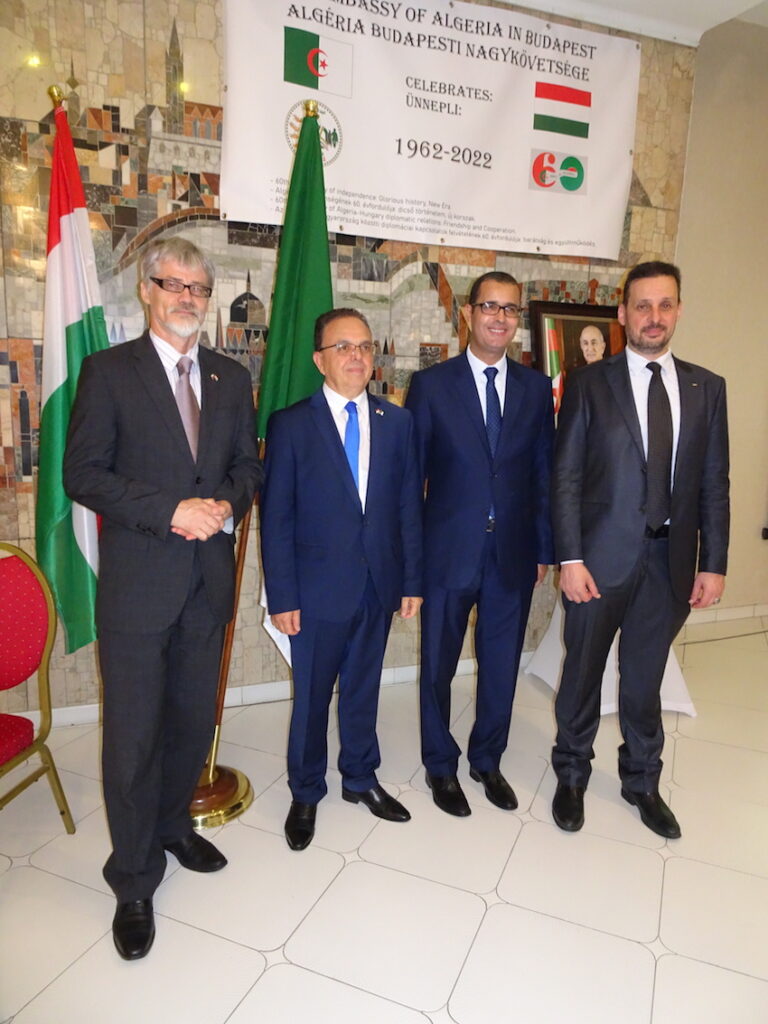
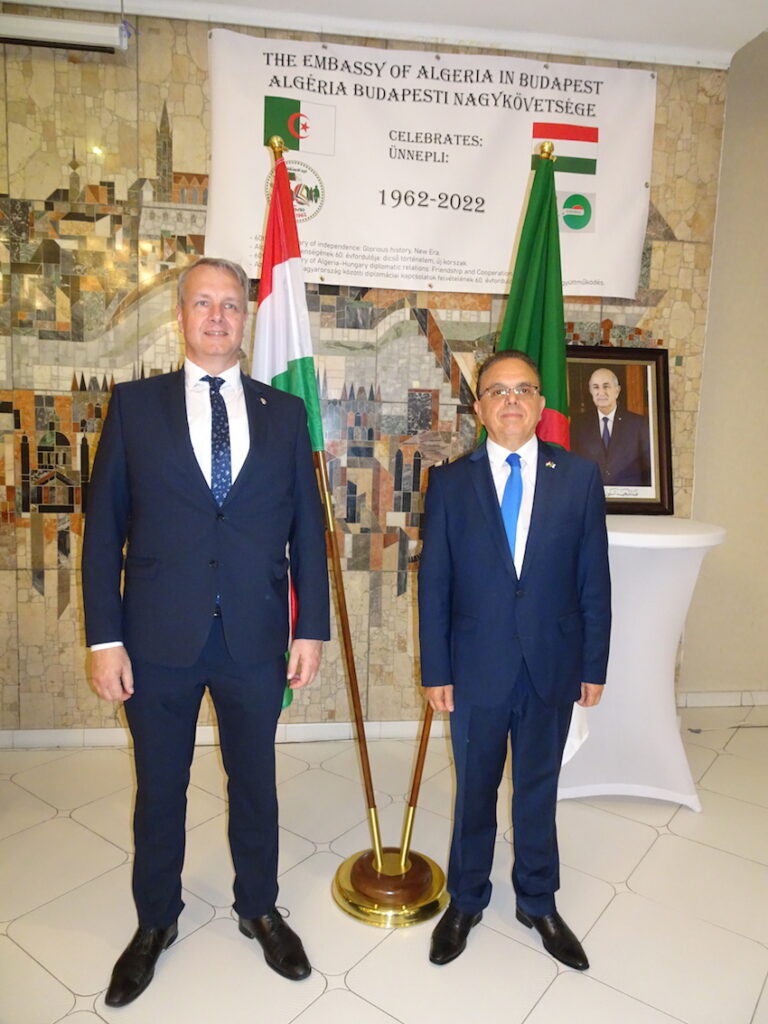
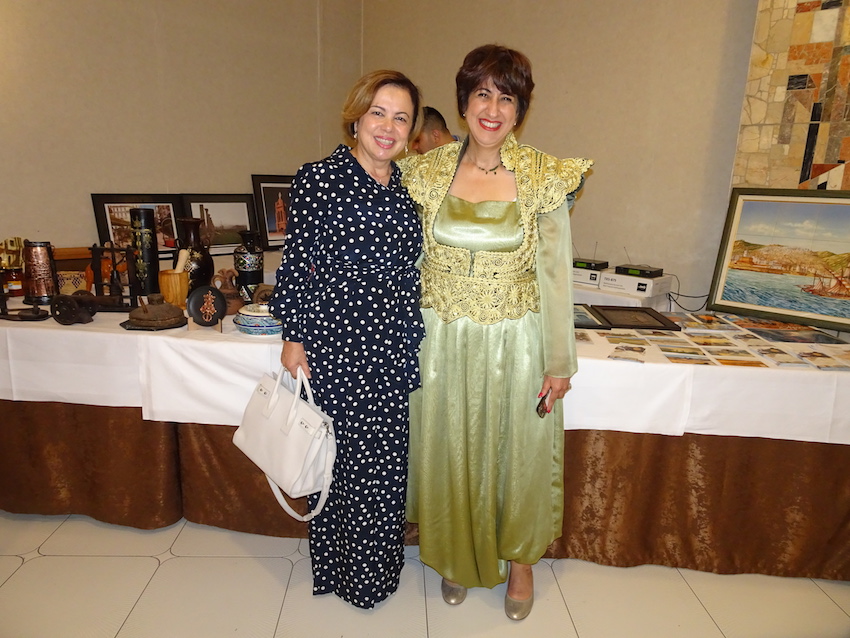


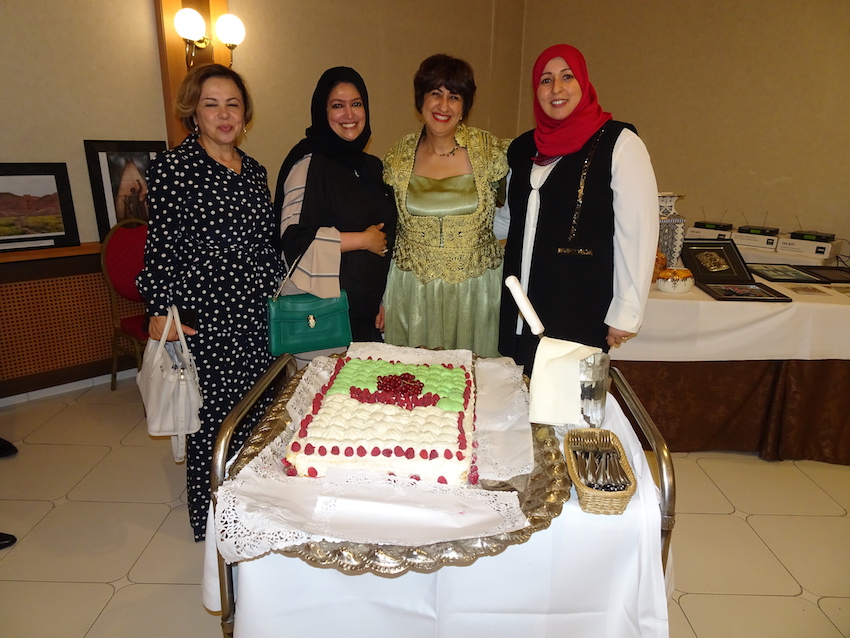
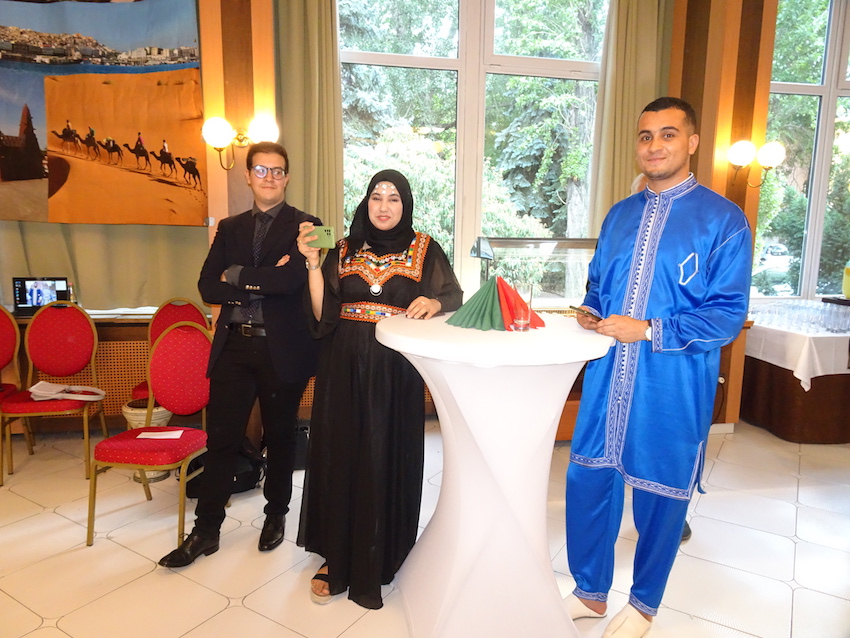
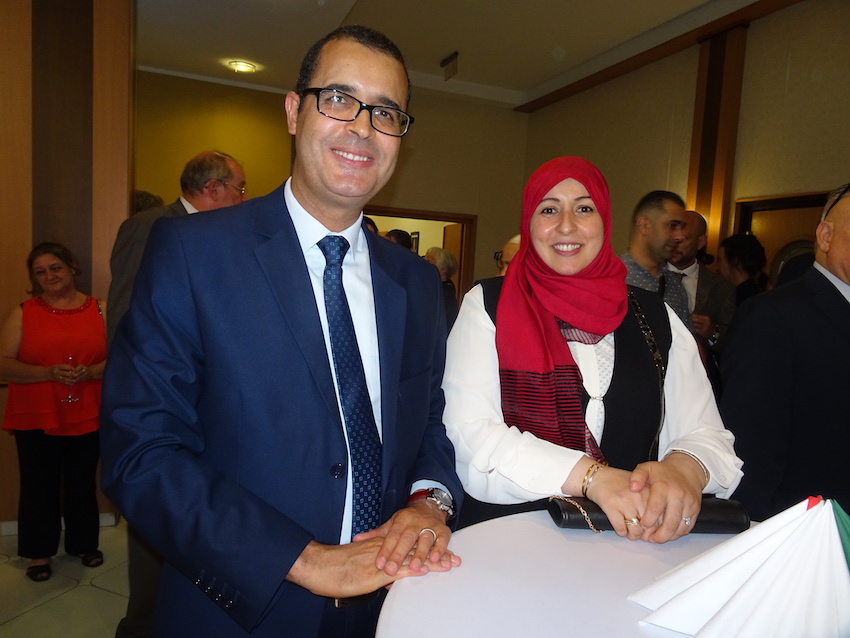
How do You see the evolution and achievements of Your country since becoming a sovereign state?
– Over the course of the past 60 years since independence, Algeria realized huge developments in all fields. Restoring sovereignty and freedom to the Algerian people was the main achievement of the liberation struggle after 132 years of French colonization, which allowed the country’s reconstruction to begin through the establishment of state institutions, sectoral development strategies and the Algerian people’s social inclusion.
These achievements have brought very positive results in terms of safeguarding and protecting sovereignty, building strong institutions, and the process of democratization. Especially since the adoption of Algeria’s New Constitution through a referendum on the 1st November 2020, which further consolidates the achievements of the country’s democratic governance, individual and collective freedoms by strengthening the place of the youth,citizenship, and participatory democracy, eradicates corruption with inclusive development across the country.
Elections are regularly organized, by universal suffrage, in the context of constitutional amendments, parliamentary and local representatives and the President of the Republic, moreover a National Human Rights Council (CNDH), a High Council for Youth (CSJ) and a National Observatory for Civil Society have been installed in the framework of political pluralism. My country is committed to achieving the UN 17 Sustainable Development Goals (SDGs) and is ranked first in terms of the Human Development Index (HDI) among the Arab and African countries.
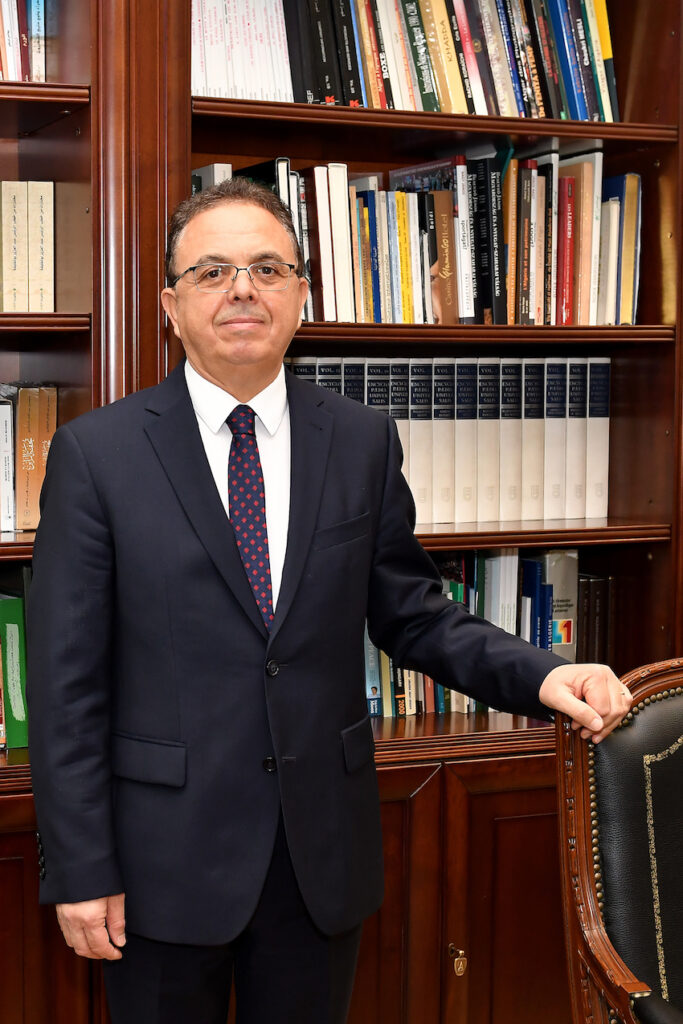
Education is free, with 11 million pupils currently in primary and secondary schools and two million enrolled in the country’s 48 universities, where five million students were educated since 1962.
The government provides its citizens a universal healthcare system and unemployment benefits, and facilitates the integration of young people by supporting small business start-ups. Access to drinking water and sanitation is guaranteed throughout the country. 98% of the population has access to gas, energy and electricity and the government provides habitat, and housing assistance.
Basic infrastructure is available in all regions, including the Trans-Sahara Highway, the country’s 14 international and 13 domestic airports, 95 hydraulic dams, and 4498 km railway network covering 30 departments. My country has significant maritime fleet all along its 1700 km Mediterranean coastline and secures its southern borders with neighbouring Sub-Saharan countries.
Algeria is committed to promoting the role and status of women and gender equity in the world, under the leadership of the President of the Republic, H.E. Mr. Abdelmadjid Tebboune, who made 54 commitments to the emergence of a new Algeria after his election in 2019.
What are the major challenges for the Algerian society currently?
– I can say that my country, like any emerging country, makes great efforts in creating jobs, particularly for young people. Algeria works on diversifying the national economy, promoting non-hydrocarbon exports, food security, and aims to reinforce resilience against climate change with particular regard to drought and post COVID-19 economic recovery.
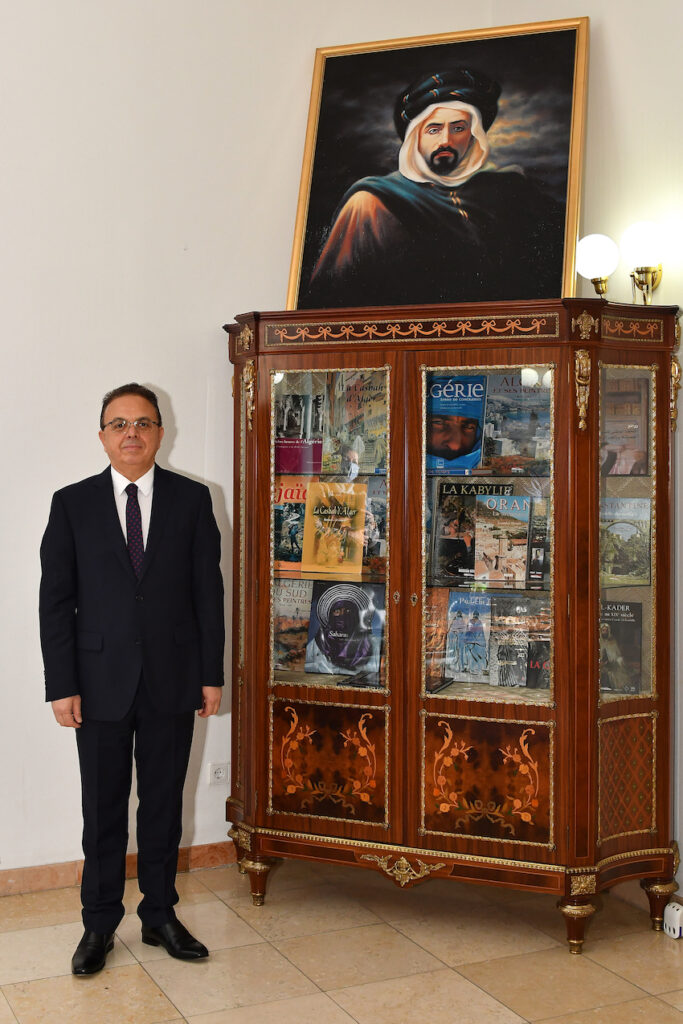
Algeria and Hungary continue to strengthen bilateral ties as the two nations mark the 60th anniversary of diplomatic relations. Your Excellency, how do You assess the Algerian-Hungarian relations in the political, business and cultural fields, which have a great historic past? Where do You see potential to enhance cooperation between our countries?
– Algeria’s relations with Hungary this year mark the 60th anniversary since the establishment of diplomatic ties between the two countries on 7 April 1962. It is a happy jubilee all the more as it coincides with the 60th anniversary of Algeria’s independence achieved on 5 July 1962.
Algerian-Hungarian bilateral relations find their roots in the multifaceted support provided by Hungary during the Algerian struggle for liberation from French colonialism. Algeria truly appreciates and will never forget this inestimable support, as evidenced by the participation of Hungarian Professor Emeritus Dr. László J. Nagy at the International Seminar of Friends of Algeria’s Revolution held on 17-18 May in Algiers. Hungary’s help was illustrated by medical aid, broadcasting the Voice of Algeria by the Radio of Budapest, the visit of the National Liberation Front (FNL) in Hungary, the friendly match between the FLN and the Hungarian Football Team in Törökbálint and Hungary voted in favour of Algeria’s independence at the UN.
Right after gaining independence, Hungary took part intensively in Algeria’s reconstruction process by sending its experts and companies to be involved in development projects in healthcare, public works, housing and construction. The most symbolic of these is the stadium of Algiers, called 5 July 1962, built by Hungarian engineers on the model of Budapest’s Puskás Stadium, formerly Népstadion.
The scholarships offered by Hungary at that time, with the aim of strengthening the human capacities of young Algerians who found themselves totally disadvantaged after the dark period of 132 years of colonialism, were also a part of Hungary’s precious and unforgettable support. In this context, I would like to highlight the crucial importance and role that the Stipendium Hungaricum Scholarship Program plays in the reinforcement of human, scientific and people-to-people ties between the two countries.
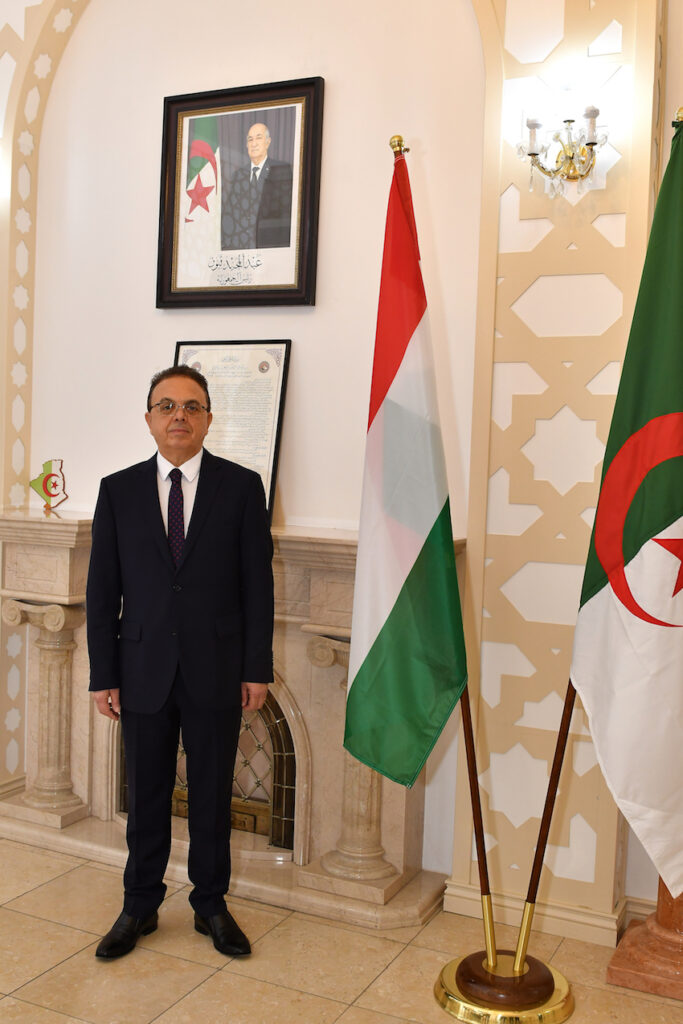
Over time, our bilateral relations have undergone qualitative evolution on political, economic, cultural as well as human levels, due to mutual ambition and willingness existing for their further promotion in view of the huge potential and comparative and complementary advantages.
Our relations with Hungary are marked with the seal of friendship and traditional cooperation. They are illustrated by exchanges of visits between the leaders of the countries, such as the visit of the Head of Hungarian Diplomacy H.E. Mr. Péter Szijjártó in October 2020 in Algiers, despite the COVID-19 context and the creation of friendship groups at the level of the Parliaments of the two countries.
In terms of cooperation, a legal framework has been established through the creation of a joint economic commission, the upcoming 3rd session of which is currently under preparation and is scheduled to take place in Budapest next autumn. On the side-lines of this event, the 2nd session of the Algerian-Hungarian Business Council is also scheduled to be held with the common objective of signing agreements and memoranda in several areas of common interest.
There is a mutual willingness and common interest for cooperation in the areas of water management, agriculture, processing industry, culture, sports, space, archives, nuclear energy, technological innovation, energy, tourism, environment and security.
It is well known that Algeria, as the largest country on the African continent, has exceptional opportunities in many areas. What are the main sectors of Your economy?
– As I mentioned before, Algeria is the largest country in Africa with the size of a continent sharing borders with countries of the Sub-Saharan and Maghreb regions, located in the neighbourhood of the Mediterranean Europe. Due to its geo-strategic position, Algeria acts as a bridge between Europe, the Mediterranean and Africa, and considers Hungary as its gateway to Central Europe. A key asset related to this geopolitical proximity is the connection of Algeria to regional infrastructures such as the Trans-Saharan Highway linking Algiers to Lagos, the Trans-Maghreb Highway, the Trans-Saharan Gas Pipeline (TSGP) mega-project between Algeria and Nigeria, which will connect to Europe and should extend over 4100 km with a transportation capacity of 20 to 30 billion cubic meters of gas. This would constitute a new source of gas supply for Europe, which is of particular importance in the current energy security context.
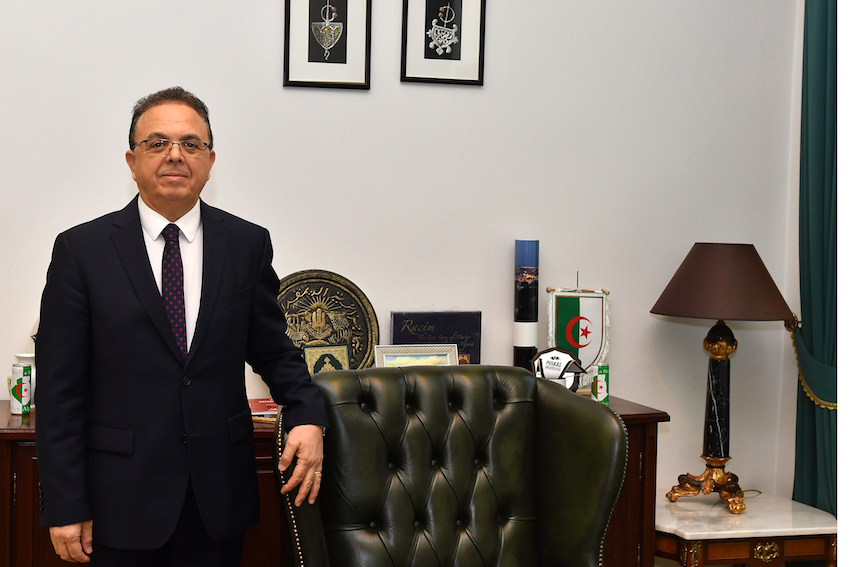
At regional level, this project would also allow the supply of energy and social benefits for transit countries such as Tunisia, Niger, Burkina Faso and Chad. There is also a fibre optic cable project with the aim of granting digital connectivity on the African continent, as well as with Europe and the rest of the world.
Algeria’s other key assets are fossil energy, gas, new and renewable energies, and maritime transport. At this point I would like to highlight the construction of the new commercial seaport, the largest port in Africa, called El Hamdania near the town of Cherchell, which constitutes part of the ‘Silk Road’ trade route, facilitating trade between Africa, Europe, Asia and America with 6.5 million containers and 26 million tons of goods.
Important key sectors are also tourism and hydrotherapy, agriculture and agro-industry, scientific and technological cooperation, air transport, with Algiers International Airport serving as a hub for Africa, and there is also a direct Algiers-Budapest air connection operated by Air Algérie.
What are the priorities and key elements of Algeria’s foreign policy?
– Algeria’s foreign policy draws its foundations and constant positions from the ideals of the anti-colonial struggle and from the principles of the United Nations Charter. For this reason, Algerian diplomacy is characterized by its proactive and constructive approach at the service of peace, security, co-development and solidarity between countries. Its main priorities are the contribution to the peaceful resolution of conflicts: in Western Sahara on the basis of the peoples’ right to self-determination, the Palestine issue, within the framework of the relevant resolutions of the United Nations, the stabilization of neighbouring Sub-Saharan countries with particular regard to the implementation of the Peace Agreement in Mali resulting from Algeria’s international mediation to exit the crisis in Libya and to fight against terrorism, organized crime and irregular migration, promoting neighbourly ties respecting sovereignty and on the basis of mutual trust.
Algeria is a candidate for a non-permanent seat on the UN Security Council for the 2024-2025 term. Economic diplomacy is a priority for my country with the aim of strengthening cooperation and partnership ties, as well as promoting exports and attracting foreign direct investment, which contributes to the diversification of the country’s economy. Algeria is interested in the Hungarian model of economic growth and transformation.
Furthermore, Algiers is preparing to host the Arab Summit next November with the accession for the Arab Presidency.
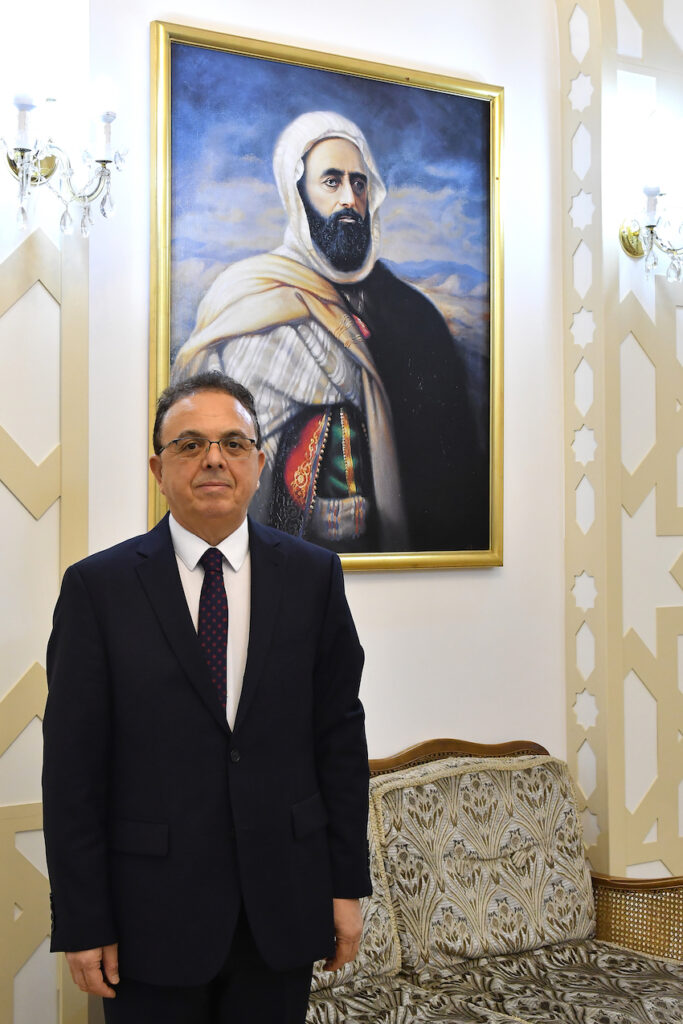
Believing in peaceful resolution of conflicts, Algeria is among the five countries mandated by the League of Arab States to promote a negotiated solution to the conflict in Ukraine.
Due to its position and weight in Africa, Algeria aims to play a key role in promoting peace, stability and security, as well as in the integrated and prosperous development of the continent, and pleads in favour of African solutions to the several African problems.
Algeria hosts the headquarters of the African Police Agency (AFRIPOL), the African Center for Studies and Research on Terrorism (CAEERT), the African Energy Commission (AFREC), the Pan-African Institute of Sciences water, energy and climate change and, is a candidate to host the African Medicines Agency (AMA). Algeria manufactures the China-developed Sinovac COVID–19 vaccinesfor its own use and also for export to other African countries. My country became member of the African Continental Free Trade Area (AfCFTA) and is committed to the realization of infrastructure construction projects with other African countries.
Algeria is a founding member of the former OAU and the African Union, and makes a substantial contribution to African unity and continental integration, as well as to the promotion of international partnerships such as Africa-EU partnerships and the Euro-Arab process. Algeria has been offering university scholarships to African students since gaining independence in 1962, through a program similar to the Stipendium Hungaricum, with more than 40,000 beneficiaries to date, with the aim of supporting and strengthening African capacities and human ties.
Algeria provides essential support for the liberation process of African countries from colonization and is a strong advocate of Africa’s mutually beneficial cooperation with its partners around the world and pleads for the treatment of root causes of illegal migration by supporting development and economic emergence in Africa, promoting employment of young people and their settlement in their countries of origin.
What would be Your wish and message for the future in this very tough period of time?
– My utmost wish and greatest desire is to contribute to strengthening friendly ties of cooperation between my country and Hungary, as well as with Slovenia, which I am covering from Budapest. Algeria has just celebrated the 30 years of the establishment of diplomatic relations with Slovenia. I am convinced that our countries will continue to further deepen ties to the mutual benefit of our friendly peoples.
Last but not least, let me wish you and the entire staff of the Diplomatic Press Agency perfect health and all the best success in your noble mission.
To the People of Hungary, I wish peace, prosperity and national harmony, as well as the return of stability and security to the region. Thank you very much for this interview.
